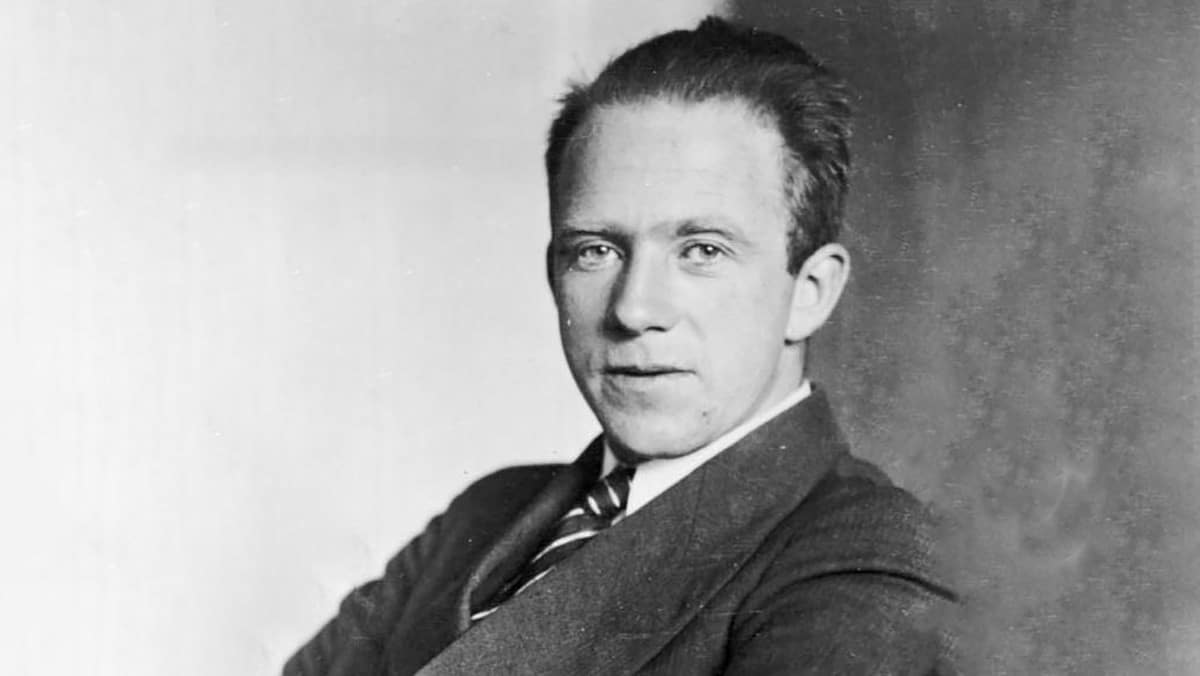
Who was Heisenberg? Werner Heisenberg was a German physicist best known for his groundbreaking work in quantum mechanics. Born in 1901, he made significant contributions to science, including the famous Heisenberg Uncertainty Principle. This principle states that it's impossible to know both the position and momentum of a particle simultaneously with perfect accuracy. Heisenberg's work earned him the Nobel Prize in Physics in 1932. Beyond his scientific achievements, he was also involved in Germany's atomic bomb project during World War II. His life and work remain subjects of fascination and debate, blending science, history, and ethics.
Who Was Heisenberg?
Werner Heisenberg was a German physicist who made significant contributions to quantum mechanics. His work has left a lasting impact on science and technology.
- Heisenberg was born on December 5, 1901, in Würzburg, Germany.
- Heisenberg's father was a professor of medieval and modern Greek studies.
- Heisenberg studied physics at the University of Munich and the University of Göttingen.
- Heisenberg completed his Ph.D. in 1923 under the supervision of Arnold Sommerfeld.
- Heisenberg was awarded the Nobel Prize in Physics in 1932 for the creation of quantum mechanics.
The Uncertainty Principle
One of Heisenberg's most famous contributions is the Uncertainty Principle. This principle has profound implications for our understanding of the quantum world.
- The Uncertainty Principle states that it is impossible to simultaneously know the exact position and momentum of a particle.
- Heisenberg formulated the Uncertainty Principle in 1927.
- The principle challenges classical physics, which assumes that particles have definite positions and velocities.
- The Uncertainty Principle is a fundamental concept in quantum mechanics.
- Heisenberg's principle implies that the act of measuring a particle's position affects its momentum, and vice versa.
Contributions to Quantum Mechanics
Heisenberg's work in quantum mechanics has shaped modern physics. His theories and discoveries continue to influence scientific research.
- Heisenberg developed matrix mechanics, a mathematical framework for quantum mechanics.
- Heisenberg's matrix mechanics was the first complete and consistent formulation of quantum mechanics.
- Heisenberg collaborated with Niels Bohr, another pioneer in quantum mechanics.
- Heisenberg's work laid the foundation for the development of quantum field theory.
- Heisenberg's contributions to quantum mechanics have been essential for advancements in technology, such as semiconductors and lasers.
Involvement in World War II
Heisenberg's role during World War II has been a subject of much debate and controversy. His involvement in the German nuclear weapon project raises ethical questions.
- Heisenberg was a leading scientist in the German nuclear weapon project during World War II.
- Heisenberg's work focused on developing a nuclear reactor and understanding nuclear fission.
- Heisenberg's involvement in the project has led to speculation about his intentions and motivations.
- Some historians believe Heisenberg deliberately sabotaged the project to prevent the Nazis from obtaining nuclear weapons.
- Heisenberg was captured by Allied forces in 1945 and held in England for interrogation.
Legacy and Impact
Heisenberg's legacy extends beyond his scientific achievements. His work has inspired generations of physicists and continues to shape our understanding of the universe.
- Heisenberg's contributions to physics have earned him a place among the greatest scientists of the 20th century.
- Heisenberg's work has influenced various fields, including chemistry, biology, and computer science.
- Heisenberg's name is often associated with the Heisenberg Group, a mathematical concept in physics.
- Heisenberg's life and work have been the subject of numerous books, documentaries, and films.
- Heisenberg's principles are applied in modern technologies, such as quantum computing and cryptography.
- Heisenberg's work has inspired philosophical discussions about the nature of reality and knowledge.
- Heisenberg passed away on February 1, 1976, but his contributions to science continue to resonate today.
Heisenberg's Legacy
Heisenberg's contributions to science are nothing short of groundbreaking. His Uncertainty Principle changed how we understand quantum mechanics, showing that we can't measure certain pairs of properties, like position and momentum, simultaneously with perfect accuracy. This principle isn't just a scientific curiosity; it has practical applications in fields like quantum computing and cryptography.
Beyond his scientific work, Heisenberg's life was filled with complexities. He navigated the turbulent waters of World War II, balancing his scientific pursuits with the moral and ethical challenges of the time. His story is a reminder that scientists are not just thinkers in ivory towers but individuals deeply affected by the world around them.
Heisenberg's legacy continues to inspire and challenge us, proving that the quest for knowledge is a journey filled with both answers and questions.
Was this page helpful?
Our commitment to delivering trustworthy and engaging content is at the heart of what we do. Each fact on our site is contributed by real users like you, bringing a wealth of diverse insights and information. To ensure the highest standards of accuracy and reliability, our dedicated editors meticulously review each submission. This process guarantees that the facts we share are not only fascinating but also credible. Trust in our commitment to quality and authenticity as you explore and learn with us.
